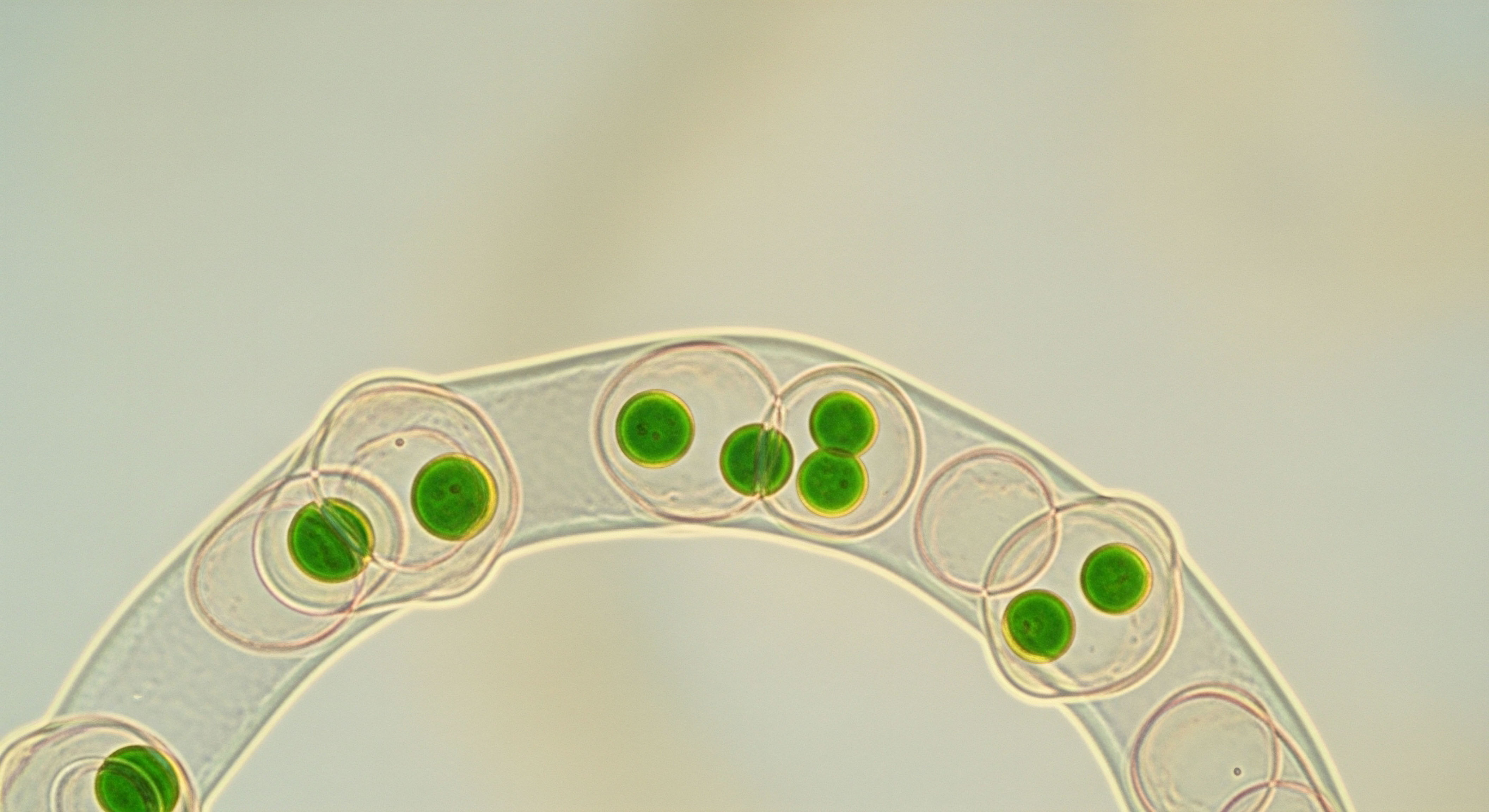

The Biological Imperative of Peak Existence
The human organism is a marvel of intricate biological engineering, a complex system designed for adaptation and survival. Yet, as the years accumulate, this system’s efficiency can wane, leading to a cascade of physiological shifts that diminish vitality, cognitive acuity, and physical prowess.
Mastering your biology is not merely an endeavor in combating aging; it is the strategic imperative to operate at the zenith of your physical and mental capabilities throughout your lifespan. It is about understanding the core mechanics that govern your being and actively optimizing them to forge a legacy of enduring physical supremacy.

The Gradual Erosion of Biological Capital
With the passage of time, intrinsic biological processes initiate a subtle yet significant decline in hormonal output, metabolic flexibility, and cellular repair mechanisms. This is not an indictment of aging, but a recognition of its physiological realities. The hypothalamic-pituitary-gonadal (HPG) axis, the master regulator of reproductive hormones, experiences a gradual reduction in signaling efficiency.
Similarly, growth hormone (GH) and insulin-like growth factor 1 (IGF-1) secretion diminish, impacting tissue regeneration, muscle protein synthesis, and fat metabolism. This hormonal recalibration can manifest as reduced energy, compromised recovery, altered body composition, and a blunting of cognitive sharpness.

Hormonal Drift and Its Consequences
For men, the steady decline in testosterone levels ∞ often termed andropause ∞ directly correlates with a loss of muscle mass and strength, increased adiposity, decreased libido, and potential shifts in mood and motivation. For women, the menopausal transition, marked by declining estrogen and progesterone, affects bone density, cardiovascular health, cognitive function, and metabolic rate.
Beyond these primary sex hormones, thyroid function can also become less optimal, slowing metabolism and energy utilization. These hormonal shifts are not isolated events; they represent a systemic decrease in the biological signals that maintain youthful function and robust physical capacity.

Metabolic and Cellular Deterioration
Concurrent with hormonal changes, cellular and metabolic health can also falter. Mitochondrial dysfunction, the decline in cellular powerhouses responsible for energy production, leads to reduced ATP generation and increased oxidative stress. This cellular fatigue underpins many age-related declines in organ function and physical endurance.
Furthermore, the accumulation of senescent cells, coupled with chronic low-grade inflammation ∞ often termed “inflammaging” ∞ creates an environment hostile to optimal tissue function and repair. This cellular senescence can impair tissue regeneration, contributing to slower wound healing, reduced muscle repair post-exercise, and diminished overall resilience.
Testosterone replacement in hypogonadal men enhanced skeletal muscle mass by stimulating the muscle protein synthesis rate. Studies indicate an average 20% increase in muscle mass and a 27% increase in muscle protein synthesis in subjects undergoing testosterone therapy.

The Foundation for Enduring Supremacy
Understanding these fundamental biological shifts is the first step toward mastery. It reveals that physical supremacy is not an immutable genetic lottery, but a dynamic state influenced by biological management. The decline in physical capacity is often a direct consequence of suboptimal hormonal milieu, impaired metabolic function, and cellular degradation.
Recognizing this lays the groundwork for a proactive, science-driven approach to reclaiming and amplifying your biological potential, ensuring that vitality and performance are not fleeting attributes of youth, but enduring qualities of a life meticulously engineered.


Engineering Your Biological Systems for Unprecedented Output
Achieving enduring physical supremacy requires a deliberate, systematic approach to optimizing your biological architecture. This involves deploying advanced strategies rooted in endocrinology, metabolic science, and cellular biology to recalibrate your body’s core functions. The “Vitality Architect” perspective views the human body as a high-performance system, capable of significant upgrades through precise interventions. This is not about mere maintenance; it is about enhancement, pushing the boundaries of what is considered peak human performance and vitality.

Hormonal Recalibration ∞ The Endocrine Blueprint
The cornerstone of biological mastery often lies in hormonal optimization. For men experiencing hypogonadism, Testosterone Replacement Therapy (TRT) is a foundational intervention. Administered via injections (e.g. Testosterone Cypionate, Enanthate) or transdermal methods, TRT restores testosterone levels to a robust physiological range, directly supporting muscle anabolism, bone density, libido, mood, and cognitive function. The precise dosage and delivery method are determined by individual biomarker profiles and clinical assessment, ensuring a tailored approach to restoring endocrine balance.

Beyond Testosterone ∞ A Comprehensive Hormonal Strategy
Mastery extends beyond testosterone. Protocols may incorporate other key hormones to support a comprehensive endocrine milieu. This can include optimizing thyroid hormone levels for metabolic efficiency, utilizing DHEA and Pregnenolone for their precursor roles in steroidogenesis, and, in specific cases, carefully managed growth hormone or IGF-1 axis support through peptides. The goal is to re-establish a symphony of hormonal signals that promote anabolism, optimize metabolism, and enhance overall vitality, rather than simply addressing a single deficiency.

Peptide Science ∞ Precision Cellular Signaling
Peptides represent a frontier in biological optimization, offering highly specific signaling capabilities to target cellular pathways. For instance, growth hormone secretagogues (GHS) like Ipamorelin, CJC-1295, or Sermorelin stimulate the pituitary gland to release more endogenous GH, supporting muscle repair, fat metabolism, and cellular regeneration without directly introducing exogenous hormones.
Other peptides are explored for their roles in tissue healing (e.g. BPC-157), metabolic regulation, and immune modulation. Their precision allows for targeted biological upgrades, acting as sophisticated messengers to direct cellular activity toward peak performance and recovery.

Metabolic Engineering ∞ Fueling the Biological Engine
A high-performance biological system demands optimal fuel delivery and energy utilization. Metabolic engineering involves refining nutrient intake and timing to enhance cellular energy production and improve body composition. Strategies include ∞
- Nutrient Timing: Aligning macronutrient intake with activity cycles to maximize anabolic responses and minimize fat storage.
- Macronutrient Manipulation: Exploring protocols such as ketogenic diets or targeted carbohydrate intake to optimize fat burning and energy substrate availability.
- Mitochondrial Support: Supplementation with compounds like CoQ10, PQQ, and NAD+ precursors (NMN, NR) to bolster mitochondrial function and combat oxidative stress.
- Strategic Fasting: Intermittent fasting or time-restricted eating can enhance insulin sensitivity and cellular repair processes like autophagy.
| Intervention Category | Primary Focus | Example Modalities | Biological Outcome |
|---|---|---|---|
| Hormonal Recalibration | Endocrine System Optimization | TRT, Thyroid Hormone Management, DHEA | Muscle mass, energy, libido, mood, bone density |
| Peptide Signaling | Cellular Pathway Modulation | GH Secretagogues (Ipamorelin, Sermorelin), BPC-157 | Tissue repair, metabolic regulation, recovery |
| Metabolic Engineering | Energy Production & Utilization | Ketogenic Diet, Intermittent Fasting, NAD+ Precursors | Fat loss, lean mass retention, cellular energy, insulin sensitivity |
| Physiological Conditioning | Systemic Resilience & Performance | High-Intensity Interval Training (HIIT), Strength Training, Cold Exposure | Cardiovascular health, VO2 max, recovery, stress adaptation |

Physiological Conditioning ∞ The Demands of Supremacy
Physical activity is a potent modulator of hormonal and metabolic systems. High-intensity interval training (HIIT) and progressive resistance training are not merely exercises but potent stimuli for endogenous hormone production, improved insulin sensitivity, and enhanced mitochondrial biogenesis. These demanding protocols push the biological system, eliciting adaptive responses that fortify it against decline and amplify its capacity for output. Strategic application of cold exposure can further enhance metabolic flexibility and resilience.
Studies suggest that testosterone increases muscle mass by increasing muscle protein synthesis. In some trials, testosterone administration led to a 20% mean increase in muscle mass and a 12% mean increase in total body potassium, indicating significant anabolic effects.


Calibrating Your Biological Clock for Optimal Lifespan Performance
The implementation of biological mastery strategies is not a one-size-fits-all endeavor; it is a dynamic, personalized calibration. Understanding when to deploy specific interventions, how to monitor their efficacy, and how to integrate them into a sustainable, long-term strategy is paramount. This temporal and personalized dimension transforms theoretical potential into tangible, enduring physical supremacy. It requires a commitment to data-driven decision-making and an adaptive mindset, recognizing that biological systems are in constant flux.

The Primacy of Personalized Data
The journey to mastering your biology begins with a comprehensive baseline assessment. This involves detailed blood work to establish current hormonal levels (testosterone, estrogen, progesterone, DHEA, SHBG, LH, FSH, thyroid panel), metabolic markers (glucose, insulin, HbA1c, lipid panel), inflammatory markers (hs-CRP), and other relevant biomarkers such as Vitamin D and B12.
Genetic predispositions and epigenetic factors also inform a truly personalized strategy. This data-driven foundation allows for precise targeting of interventions, ensuring that treatments are applied when and where they will yield the greatest benefit.

Continuous Monitoring and Adaptive Strategy
Biological optimization is an ongoing process, not a destination. Regular follow-up assessments ∞ typically every 3-6 months for hormonal therapies, and periodically for other interventions ∞ are critical. This monitoring tracks responses, identifies potential imbalances, and allows for adjustments to protocols.
For example, testosterone therapy might require co-administration of an aromatase inhibitor or hCG to maintain optimal estrogen levels and testicular function. Peptide cycles often involve specific durations and off-periods to maintain sensitivity and efficacy. This adaptive approach ensures sustained results and mitigates potential adverse effects.

Strategic Phasing of Interventions
The timing of interventions is crucial for maximizing impact and ensuring long-term success.
- Foundation Phase: Establish baseline data and implement foundational lifestyle changes ∞ optimizing sleep, nutrition, and stress management. Address significant deficiencies.
- Optimization Phase: Introduce targeted hormonal therapies, peptide protocols, and advanced metabolic strategies based on assessment data and performance goals.
- Maintenance Phase: Fine-tune dosages, cycle interventions, and focus on sustained health and performance, with ongoing monitoring to prevent plateaus or regressions.
- Longevity Phase: Integrate advanced longevity science interventions ∞ senolytics, NAD+ replenishment, telomere support ∞ to extend healthspan and functional vitality.

Recognizing the Windows of Opportunity
Certain biological windows present optimal times for intervention. For example, post-exercise is a critical period for nutrient uptake and muscle protein synthesis, making timely protein and carbohydrate intake highly effective. Periods of high stress or intense training may necessitate adjustments in hormonal support or recovery protocols.
The understanding of these biological rhythms allows for the strategic deployment of therapies, amplifying their natural effects. The “when” is as critical as the “what” and “how” in the pursuit of enduring physical supremacy.
The precise application of hormone optimization and peptide signaling requires diligent monitoring. Regular biomarker tracking ensures that interventions remain effective and aligned with individual physiological responses, preventing suboptimal outcomes.

The Unyielding Pursuit of Biological Excellence
Mastering your biology for enduring physical supremacy is the ultimate act of self-authorship. It is a commitment to understanding the intricate machinery of your own existence and wielding that knowledge to construct a life of peak performance, sustained vitality, and profound capability.
This is not a passive journey; it is an active, data-informed, and strategically executed endeavor. By embracing the principles of hormonal recalibration, precision peptide signaling, metabolic engineering, and personalized calibration, you transcend the limitations of passive aging. You become the architect of your own biological destiny, forging a future defined not by decline, but by an ever-expanding capacity for excellence. This is the dawn of your optimized self, a testament to the power of informed biological mastery.



